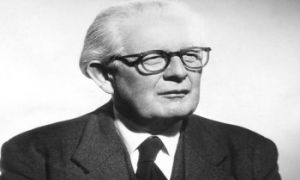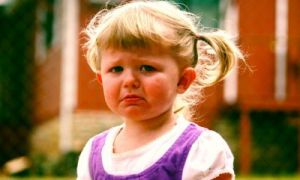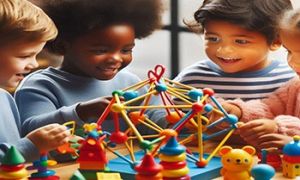

Unstructured play materials refer to those play materials whose uses are not predetermined by educators. Also known as of heuristic play materials, the scope for play with unstructured materials is thus unlimited, allowing children to develop agency, skills and imagination. The following article provides information on what types of unstructured play materials can be included, how to store play materials and how to facilitate children's play.
Belonging, Being and Becoming: The EYLF lists ‘High Expectations’ as one of five Principles that underpin practice. This is based on the premise that all children come with the potential to learn and unique sets of abilities which can be best realized when educators consistently have high expectations for them. The following article provides strategies on how Educators achieve best practices so that each child can realise their potential.
Even for the most accomplished of new graduates, the transition from educational to professional context can be challenging. Not only is the new educator thrust into the hurly-burly of everyday teaching, but is expected to adjust to an entirely unfamiliar ecosystem of the service. If you are facing a similar prospect, here are a few strategies for a new educator starting in early childhood services, to help you give your professional best.
Early childhood services are among the most demanding professional situations. Being responsible for the care and learning of toddlers and young children often leaves caregivers and educators vulnerable to highly physically and emotionally stressful moments over the day. If you find yourself often struggling to cope, here are some tips on managing stressful moments.
Floorbook is a documentation approach that uses a large book with blank pages for children to record different aspects of their learning in small groups or as a whole group. The following article provides information on the Features Of A Floorbook, Child Centred Approach, How Educators Can Use Floorbooks and more.
For ECT's working in early childhood services, they are on the Educational Services Teachers Award and there are 5 Classification Levels which determines their rate of pay.
Within an early childhood setting, throughout the day, children experience many transitions such as transitions that occur between activities or routines. The following article provides information on Transitions Between Activities, Supporting Transitions Between Activities, Transition Songs and Chants and more.
On 26 January we celebrate Australia Day. A day to reflect on what we have achieved and what we can be proud of in our great nation. However, for Aboriginal Australians, it's a day of sorrow and loss. A clear reminder of their loss of freedom, loss of family, loss of culture - January 26 for Aboriginal Australians mourn the day by calling it Invasion Day.
One of the biggest hazards we face as early childhood Educators is back injuries. The amount of times we bend, stretch, and lift throughout the day is endless and this can put a strain on your back, causing serious long-term injuries. The following article provides information on Back Risks, Prep Before The Day, Strategies To Support Back Care Throughout The Day and more.
Writing a personal philosophy is a great way for others to read what your values and beliefs are in regard to early childhood education. The following article provides information on how to write a personal philosophy including details of what can be included, questions to think about and examples of personal philosophies.
 Toddlers have a greater understanding of the world around them by this stage. Their cognitive development (also known as intellectual development and thinking skills) continues… Read More
Toddlers have a greater understanding of the world around them by this stage. Their cognitive development (also known as intellectual development and thinking skills) continues… Read More
 Infants begin to develop trust when parents begin to fulfil their needs. Such as changing an infant's nappy when needed, feeding on request and holding… Read More
Infants begin to develop trust when parents begin to fulfil their needs. Such as changing an infant's nappy when needed, feeding on request and holding… Read More
 Beginning at birth the construction of thought processes, such as memory, problem solving, exploration of objects etc, is an important part of an infant’s cognitive… Read More
Beginning at birth the construction of thought processes, such as memory, problem solving, exploration of objects etc, is an important part of an infant’s cognitive… Read More
 Toddlers want to do more on their own and do not like it when you begin to establish limits on their behaviour. Tantrums can become… Read More
Toddlers want to do more on their own and do not like it when you begin to establish limits on their behaviour. Tantrums can become… Read More
 Your preschooler is now able to focus their attention more accurately and is less influenced by distractions. The intensity of questions increase as your child… Read More
Your preschooler is now able to focus their attention more accurately and is less influenced by distractions. The intensity of questions increase as your child… Read More
 John Dewey is often seen as the proponent of learning by doing – rather than learning by passively receiving. He believed that each child was active,… Read More
John Dewey is often seen as the proponent of learning by doing – rather than learning by passively receiving. He believed that each child was active,… Read More
 Toddler advance and gains new skills in Gross Motor Development milestones achieved throughout earlier years. Co-ordination and challenges that could not be performed before such… Read More
Toddler advance and gains new skills in Gross Motor Development milestones achieved throughout earlier years. Co-ordination and challenges that could not be performed before such… Read More
 Erik Erikson developed a psychosocial theory to understand how we each develop our identities through eight stages of psychosocial development from infancy to adulthood. The… Read More
Erik Erikson developed a psychosocial theory to understand how we each develop our identities through eight stages of psychosocial development from infancy to adulthood. The… Read More
 At this point preschoolers begin to interact effectively with others. Play becomes more innovative and organized and “boyfriend” or “girlfriend” begins to emerge. Preschoolers have… Read More
At this point preschoolers begin to interact effectively with others. Play becomes more innovative and organized and “boyfriend” or “girlfriend” begins to emerge. Preschoolers have… Read More
 From now, babies begin to identify and respond to their own feelings, understanding other's feelings & needs and interact positively with others. A baby's social and… Read More
From now, babies begin to identify and respond to their own feelings, understanding other's feelings & needs and interact positively with others. A baby's social and… Read More

Piaget discovered that all children’s cognitive development progressed through four stages, beginning in infancy and...
See more...
As part of your child's development it is normal for your child to have anxiety...
See more...
Social Constructivist Theory in Early Childhood Education is a learning approach grounded in the idea...
See more...© 2009-2025 Aussie Childcare Network Pty Ltd. All Rights Reserved.

